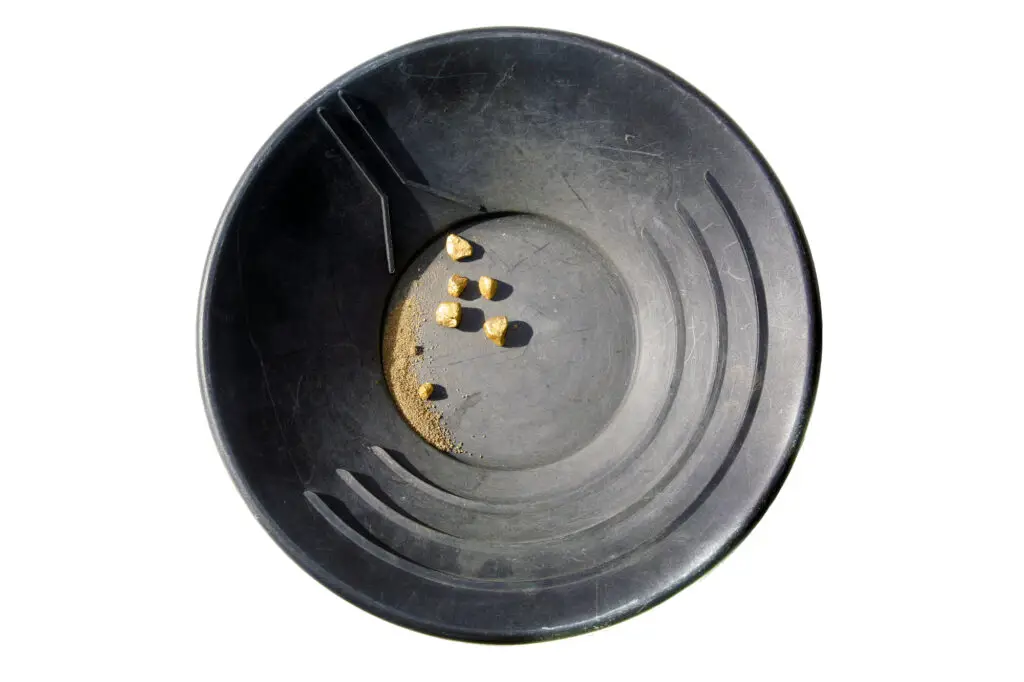As the thrill of finding hidden treasure continues to enchant people around the world, gold panning has become an increasingly popular hobby. Massachusetts, steeped in rich history and natural beauty, offers its own unique opportunities for amateur gold prospectors. However, before venturing out with your trusty gold pan and dreams of striking it rich, it’s essential to familiarize yourself with the state’s gold panning laws to ensure a responsible and rewarding experience.
In this blog post, we will delve into the gold panning regulations in Massachusetts, exploring the legalities of this exciting pastime, as well as shedding light on the history of gold discoveries in the state. Join us as we unearth the secrets of gold panning in The Bay State, and learn how you can responsibly seek your fortune while preserving the natural environment for generations to come.
- Has Gold Been Found In Massachessetts? What Is The History?
- Is It Legal To Pan For Gold In Massachessetts?
- What Areas In The State Are Permitted For Gold Panning?
- What The Costs Involved In Getting A Permit For Gold Panning?
- What Rivers And Streams Are Suitable For Gold Panning In Massachessetts?
- Are There Any Gold Mines In Massachessetts?

Has Gold Been Found In Massachessetts? What Is The History?
Yes, gold has been found in Massachusetts, although it is not typically considered a major gold-producing state. The earliest recorded discovery of gold in Massachusetts dates back to the mid-1800s, during the heyday of the California Gold Rush. Prospectors seeking their fortune in the West returned to Massachusetts and began searching for gold in local streams and rivers.
One of the most significant gold discoveries in Massachusetts occurred in the early 1900s, when a group of prospectors discovered a vein of gold in the town of Greenfield. The vein was small, but it yielded a considerable amount of gold over the years.
Today, recreational gold panning is still a popular activity in Massachusetts, with many enthusiasts exploring the state’s rivers and streams in search of the elusive metal. While most prospectors do not strike it rich, the thrill of the hunt and the connection to the state’s rich history make gold panning a rewarding hobby for many.
Is It Legal To Pan For Gold In Massachessetts?
Yes, it is legal to pan for gold in Massachusetts, as long as you follow the state’s regulations. The Massachusetts Department of Environmental Protection (MassDEP) oversees the state’s gold panning regulations and requires prospectors to obtain a permit before engaging in any gold panning activity.
Additionally, MassDEP has established rules to protect the environment and ensure that gold panning is done responsibly. For example, prospectors must obtain written permission from private landowners before panning on their property, and they must avoid disturbing any cultural or historical artifacts they may encounter while prospecting.
It’s worth noting that gold panning is only permitted in certain areas of the state, and some waterways may be off-limits to protect critical habitats or endangered species. Therefore, it’s essential to check with MassDEP and obtain the necessary permits before heading out to pan for gold in Massachusetts.
What Areas In The State Are Permitted For Gold Panning?
There are several areas in Massachusetts where gold panning is permitted. Some of the most popular locations include:
Berkshire County: The Berkshire Mountains in Western Massachusetts are known to contain small amounts of gold. Some of the best spots for panning in this area include the Deerfield River, the Cold River, and the Westfield River.
Central Massachusetts: The Swift River in Central Massachusetts is a popular location for gold panning. Other streams and rivers in the area that may contain gold include the Ware River, the East Branch of the Swift River, and the Millers River.
Southeastern Massachusetts: The Taunton River and the Chicopee River in Southeastern Massachusetts are both known to contain small amounts of gold. Other potential locations in the area include the Blackstone River and the Wading River.
It’s worth noting that some of these locations may require additional permits or permissions before panning is allowed. Additionally, it’s always important to respect private property and obtain permission from landowners before panning in any location.
What The Costs Involved In Getting A Permit For Gold Panning?
In Massachusetts, the cost of obtaining a permit for gold panning varies depending on the type of permit and the duration of the permit. The Massachusetts Department of Environmental Protection (MassDEP) issues two types of permits for gold panning:
Individual Permits: An individual permit is required for anyone planning to conduct gold panning activities on public or private land. The cost of an individual permit is $30 per year.
Group Permits: A group permit is required for organized gold panning activities, such as those organized by clubs or schools. The cost of a group permit is $100 per year.
It’s important to note that these permit fees are subject to change, and it’s always a good idea to check with MassDEP for the most up-to-date information on permit costs and requirements.
In addition to the permit fees, prospectors may also need to purchase or rent equipment, such as gold pans, sluice boxes, and dredges, which can add to the overall cost of gold panning. It’s also important to factor in any travel expenses, such as gas and lodging, if you plan to explore areas outside of your local region.
What Rivers And Streams Are Suitable For Gold Panning In Massachessetts?
There are several rivers and streams in Massachusetts that are suitable for gold panning. Some of the most popular locations include:
Deerfield River: The Deerfield River, located in Western Massachusetts, is known to contain small amounts of gold. Panning is allowed in the river but be sure to check the specific regulations for the area you plan to pan.
Swift River: The Swift River, located in Central Massachusetts, is one of the most popular locations for gold panning in the state. This river is known to contain small amounts of gold, and panning is allowed in some sections.
Westfield River: The Westfield River, also located in Western Massachusetts, is another popular location for gold panning. Panning is allowed in some areas of the river, but be sure to check the regulations before panning.
Chicopee River: The Chicopee River, located in Western Massachusetts, is known to contain small amounts of gold. Panning is allowed in some areas of the river, but be sure to check the specific regulations before panning.
Taunton River: The Taunton River, located in Southeastern Massachusetts, is known to contain small amounts of gold. Panning is allowed in some areas of the river, but be sure to check the regulations before panning.
It’s important to note that not all areas of these rivers and streams are suitable for gold panning, and some areas may be off-limits due to environmental or cultural concerns. Additionally, it’s always important to respect private property and obtain permission from landowners before panning in any location.
Are There Any Gold Mines In Massachessetts?
There are no active gold mines in Massachusetts today, although there have been several small-scale operations in the past. The most significant gold mine in Massachusetts was the Richardson Mine, located in the town of Rowe in Western Massachusetts. The Richardson Mine operated from the mid-1800s until the early 1900s, and it produced several thousand ounces of gold during its operation.
Today, recreational gold panning is the primary way that people search for gold in Massachusetts. Prospectors explore streams and rivers throughout the state, looking for small amounts of gold that have been eroded from nearby deposits. While it’s unlikely that anyone will strike it rich panning for gold in Massachusetts, the thrill of the hunt and the connection to the state’s rich history make it a rewarding hobby for many.

